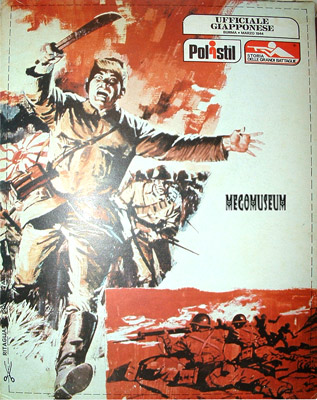Ok, guys. I have long time personal connections to a country, which was occupied by the Japanese during WW2 and has seen violent fighting.
I’m speaking about the Republic of the Philippines. My first wife came from there, I have a teenage daughter, who is half Filipina, and my girlfriend of the last five years comes from there as well (different province though).
I have been there a few times (well away from tourist spots, living with the family in a rural village and in a provincial capital).
From what I have heard and what I understand, the behaviour of Japanese troops varied big time, depending largely on the unit commander and on the individual soldiers.
Unlike in Germany, with the Lebensraum politics and the ideology of the Aryan race, there was no master plan to exterminate whole populations in industrial scale.
On the other hand, since the late 1920s, the Japanese population has been indoctrinated more and more by propaganda about the superiority of the Japanese and their entitlement to rule Asia. This was mainly pushed forward by a conglomerate of Japanese industrialists, who wanted access to cheap raw materials, and rightwing militaries, who felt cheated from their spoils of being on the winning side in WW1. They considered that, by being a victorious country fighting on the Allied side, they should, similar to France and Britain, who divided the former German colonies in Africa up between themselves or the remains of the Ottoman empire , have been rewarded with territory. This never happened during the Versailles conference.
Starting in the mid 1920s, Japanese politicians, who openly oposed the rightwing hardline course, were assasinated. From the early 1930s on, after Japan became defacto a military dictatorship, a “thought police” was founded to root out all opposition, which in the end came mainly from the banned Japanese Communist Party.
From this time on, Japanese children were raised under constant propaganda how great they are. At the same time corporal punishment was a standard means of discipline in the Japanese forces, e.g. a soldier had to stand to attention and have his sergeant beat a hobnailed boot into his face.
They were also drilled that any surrender was dishonourable, not only for themselves, but for their whole family.
In some units, recruits were forced to bayonet prisoners to “harden” them. Refusal was considered refusing to obey orders, with all consequences.
Similar things happened to young officrs, who were forced to behead prisoners to show that they were “real men”.
Also, concerning the will to fight to the last bullet, the Japanese were under a constant propaganda stream about the Allies, that the Allied Soldiers would kill and rape. This was one reason why e.g. so many Japanese women killed themselves in Saipan. They beleived the stories from their own propaganda that they would be gangraped by US Marines.
Now back to the Philippines:
There was widely varying behaviour. On one hand I’ve heard stories from my ex grandmother in law about babies being used for bayonet practice, on the other hand I have heard stories about different units in different provinces, who actually helped the local population, behaved themselves and were in such a good relation, that there were actually marriages between Japanese soldiers and local women.
Jan







 ). It is just as sad as the Brit&American Bombings of Germany, just trying to weak people by making them morally vulnerable. Japan was the same thing, I know, but in Hamburg the direct effects of the bombs on people would last ¿One month? on the worse wounded, whereas in Nagasaki or Hiroshima, even today, th radiation effects are still there fucking around those people.
). It is just as sad as the Brit&American Bombings of Germany, just trying to weak people by making them morally vulnerable. Japan was the same thing, I know, but in Hamburg the direct effects of the bombs on people would last ¿One month? on the worse wounded, whereas in Nagasaki or Hiroshima, even today, th radiation effects are still there fucking around those people.